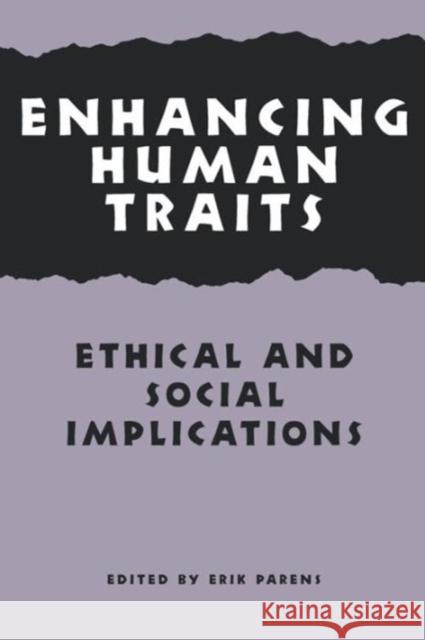Enhancing Human Traits: Ethical and Social Implications » książka
Enhancing Human Traits: Ethical and Social Implications
ISBN-13: 9780878407804 / Angielski / Miękka / 2000 / 272 str.
As biomedical science progresses, ever more effective medical technologies are devised for the treatment of illnesses, and this is, of course, a good thing. But how do we feel about the use of such technologies by people who are healthy to start with in order to become more than healthy? Many such enhancement technologies are already widely available. Cosmetic surgery is used for aesthetic enhancement of the body, beta-blockers such as Propranolol by musicians to block the physical symptoms of performance nerves, thereby enhancing the quality of their playing, and the antidepressant Prozac is used as an agent of what Peter Kramer has called cosmetic psychopharmacology, or alteration of personality, to make people less shy, less compulsive, more confident. We have to assume that with time more enhancement technologies will become available - many more, employing surgery, genetics, pharmacology, and heaven knows what else, directed in particular at cognitive function and longevity. Are enhancement technologies a good thing? Overall, attitudes towards them are ambivalent in the extreme. After all, we regard self-development through education and exercise to become wiser and fitter as a virtue, almost a duty. Why not pursue these ends by means of enhancement technologies? Yet to many people, enhancement technologies evoke eugenics, Nazi conceptions of the superman, and Huxley's Brave New World. The appearance of Enhancing Human Traits represents something of a landmark with respect to discussion of these thorny issues. This is the product of a project co-ordinated by the philosopher Erik Parens at the Hastings Center, that brought together thinkers from a number of fields, including philosophy, law, sociology, theology and women's studies, to discuss the rights and wrongs of biological enhancement. The book contains 13 very different essays on distinct facets of this complex subject. These involve two sorts of discussion about enhancement. The first focuses on the distinction between treatment and enhancement, and concerns what doctors should and should not do, and what healthcare systems should and should not provide. The second deals with the broader issue of the value of enhancement technologies per se. As Parens puts it, the first discussion of enhancement concerns the goals of medicine, and the second the goals of society.











